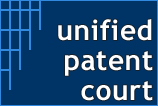Will 2017 be the year that the Unitary Patent system sees the light of day? A year ago the general expectation was for the system to fully launch this spring, with a provisional period starting late 2016. After the Brexit vote considerable delays were expected, but an announcement by the UK government late November led to renewed optimism and predictions that the Unitary Patent and Unified Patent Court could start functioning by the end of this year. An update by Kluwer IP Law.
The system
The Unitary Patent (EU) will be a European patent, granted by the European Patent Office (EPO), to which unitary effect is given for the territory of all participating EU member states. It will co-exist with national patents and classical European patents (which have to be validated in every separate country). In the future proprietors will have a choice between using Unitary Patents, classical European patents, national patents or a combination thereof for the protection of their inventions.
 The UP system also includes the creation of the Unified Patent Court (UPC). The UPC will consist of a Court of First Instance, a Court of Appeal and a Registry. The Court of First Instance will have a central division as well as local and regional divisions. The central division will be seated in Paris, with sections in London and Munich. Every member state may set up a local division or a regional division together with one or more other member states.
The UP system also includes the creation of the Unified Patent Court (UPC). The UPC will consist of a Court of First Instance, a Court of Appeal and a Registry. The Court of First Instance will have a central division as well as local and regional divisions. The central division will be seated in Paris, with sections in London and Munich. Every member state may set up a local division or a regional division together with one or more other member states.
The UPC will have exclusive competence in respect of classical European patents and Unitary Patents. During a transitional period of 7 or possibly 14 years, classical European patents can be opted-out from the jurisdiction of the court.
Entry into force
The coming into effect of the UP system requires ratification of the Unified Patent Court Agreement (UPCA) by at least 13 EU countries that must include Germany, France and the UK. So far, 11 member states have ratified the UPCA, including France.
Before the system launches in full (on the first day of the fourth month of the deposit of the thirteenth so-called instrument of ratification with the EU Council), a provisional period is envisaged. A ‘provisional protocol’ to the UPC agreement was signed by a group of member states in October 2015. It will enter into force the day after 13 member states, including Germany, France and the UK, have ratified the UPCA, or have received parliamentary approval to ratify it; ànd have approved the protocol or declared themselves bound by it. So far, these conditions have been met by 9 member states, including France.
Due to the different conditions for entry into force of the protocol and the UPCA, the provisional period is created in which parts of the UPCA can be applied early. This is crucial for the practical set-up of the court, for example the recruitment of judges and testing of IT systems. The provisional phase will also be used to allow for early registration of opt-outs.
 The UK vote of 23 June 2016 to leave the European Union made an end to the general expectation that the provisional period could start in the autumn of last year and that the Unified Patent Court could open its doors in January 2017. Considerable delays were predicted for the system, as it was considered unlikely that the UK – though one of the mandatory ratifiers of the UPCA – would still be willing to support a system based strongly on EU legislation. However, on 28 November 2016 the UK government surprised the world by announcing it would proceed with preparations to ratify. Even though it is not sure the UK can stay in the system once it leaves the EU.
The UK vote of 23 June 2016 to leave the European Union made an end to the general expectation that the provisional period could start in the autumn of last year and that the Unified Patent Court could open its doors in January 2017. Considerable delays were predicted for the system, as it was considered unlikely that the UK – though one of the mandatory ratifiers of the UPCA – would still be willing to support a system based strongly on EU legislation. However, on 28 November 2016 the UK government surprised the world by announcing it would proceed with preparations to ratify. Even though it is not sure the UK can stay in the system once it leaves the EU.
25 member states?
‘A single patent court covering 25 countries’, can be read on the website of the UPC Preparatory Committee. The EPO website explains the Unitary Patent will have effect in 25 participating EU member states. (Spain and Croatia never joined, Poland participated in the enhanced cooperation leading to the UP system, but announced it would not sign or ratify the UPCA after a Deloitte study showed that the system would have a very negative impact on the Polish economy.)
However, in reality the UP system is likely to start off with considerably less than 25 member states, probably between 15 and 20. As said before, 11 member states have so far ratified the UPCA, the UK and Germany are needed for the system to launch; Italy, Slovenia and Lithuania are reportedly on the verge of ratifying.
But in Cyprus, the Czech Republic, Greece and the Slovak Republic there is no or hardly any progress towards ratification. Ireland has to decide by referendum, but a date has not been set. In other member states it isn’t clear what will happen. The outcome of a study on the impact of the UPC on the Hungarian economy was negative, for instance. Still, Hungary, home to the UPC’s judges training centre, is expected to ratify the UPCA. (source)
The road ahead
Since the UK announced it would stay involved, there have been new predictions regarding the launch date of the UP system. Many expect this will happen by the end of 2017. Still, quite a few things need to be achieved.
The United Kingdom has to complete the ratification process, as it has said it intends to do. Since the November announcement, a UK representative in Brussels has signed the Protocol on Privileges and Immunities (PPI), one of the steps in the process that leads to UK ratification.
The PPI will be laid before Parliament for 21 sitting days. A statutory instrument (SI) to enact the PPI, subject to a so-called affirmative procedure, needs to be passed through the UK House of Commons and House of Lords and also the Scottish Parliament, which will each have a committee consider it. If the PPI has got through Parliament, then the UK is ready to ratify; the UPC Agreement itself went through a similar procedure last year. The rest is formalities: the preparation of the UK’s instrument of ratification by the Foreign Office, its signature by the Foreign Secretary, and the deposit with the EU Council in Brussels. That could happen in April, an observer has said. But will it happen? Politically it is a sensitive issue.
Germany will have to complete its ratification process as well. A draft bill for the implementation of the UPCA was published by the Government last December. The draft, plus the provisional protocol, will probably be discussed in Parliament February or March 2017. Germany will likely choose the moment to deposit of its instrument of ratification in consultation with the UPC Preparatory Committee and the EPO.
 The UPC Preparatory Committee will have to gather support for the Provisional Protocol as soon as possible, so it can finalize the practical preparations for the court. In a recent interview with Kluwer IP Law Alexander Ramsay, chairman of the committee, said this is a top priority.
The UPC Preparatory Committee will have to gather support for the Provisional Protocol as soon as possible, so it can finalize the practical preparations for the court. In a recent interview with Kluwer IP Law Alexander Ramsay, chairman of the committee, said this is a top priority.
Apart from this, the committee and the EPO will probably try to get as many member states into the system before it launches. And they will have to keep industry up-to-date about developments. Late November, the UPC Preparatory Committee announced that it is ‘aware of the need for business to prepare for the start of the new patent system. This need is taken seriously by the Committee and in order to facilitate such predictability a revised roadmap will be published (…) as soon as possible.’ It could be one of the issues on the table when the committee meets later this week.
For regular updates on the Unitary Patent and the Unified Patent Court, subscribe to this blog and the free Kluwer IP Law Newsletter.
________________________
To make sure you do not miss out on regular updates from the Kluwer Patent Blog, please subscribe here.


